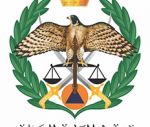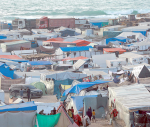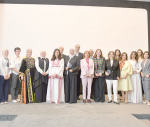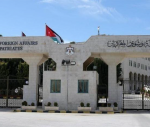You are here
Nuclear interfaith dialogue can have important benefits
Feb 01,2020 - Last updated at Feb 01,2020
The first week of February marks World Interfaith Harmony Week. This United Nations-recognised event highlights and encourages interfaith dialogue and empowers its advocates. It was first proposed by His Majesty King Abdullah in 2010 and represents just one of many interfaith initiatives of the Hashemite Kingdom. Jordan’s work earned His Majesty the 2018 Templeton Prize, given to leaders who affirm life’s spiritual dimension. World Interfaith Harmony Week is a fitting time to appeal for a new programme of interfaith dialogue focused on achieving a Middle East Zone Free of Nuclear Weapons and other Weapons of Mass Destruction (WMD), or Middle East Zone.
The timing and logic are compelling for reasons well beyond the UN designation of Interfaith Harmony Week. In November, Jordan presided over the first annual Conference on the Establishment of a Middle East Zone Free of Nuclear Weapons and other Weapons of Mass Destruction at UN headquarters in New York. This conference will meet annually until it achieves a legally binding zone treaty. Despite general unity of purpose among the participants, success is unlikely any time soon. The United States and Israel boycotted the conference; Israel supports a zone in principal but asserts that it can only come after a comprehensive regional peace ensuring its security. Technical challenges of monitoring and verification are another obstacle, as are differences of opinion over the scope of the treaty. For example, should its definition of weapons of mass destruction include ballistic missiles? Iran does not think so, and as ballistic missiles become more accurate, the case grows stronger that they can be an effective and legitimate conventional deterrent.
Lost in the political and legal debates over procedure, verification and Israel’s opaque arsenal are more fundamental normative questions. The longstanding desire to achieve a Middle East Zone is premised on an assumed consensus that weapons of mass destruction are immoral and should be eliminated. But countries hedge, and many opinions are more nuanced. This is especially true regarding nuclear weapons, which are often seen as legitimate for deterrence. The nuclear arsenals of the United States and Russia enjoy broad domestic legitimacy, including among the religious. Apparently, however horrible nuclear war would be, there are circumstances under which it could be justified as a lesser evil. To what extent does this same sentiment exist in the Middle East? Just how strong are the region’s anti-nuclear norms? Iranian Supreme leaders Khomeini and Khamenei both issued fatwas against the possession of nuclear weapons, but other Iranian clerics argue that it is permissible to possess them for deterrence purposes. Influential Sunni clerics have made similarly diverse arguments. Some global interfaith meetings have produced passionate calls for nonproliferation and disarmament in support of the 2017 Treaty on the Prohibition of Nuclear Weapons. But no sustained, in-depth effort has been made to probe Abrahamic identity and values as a basis for negotiating regional arrangements in the Middle East.
A programme of Abrahamic nuclear interfaith dialogue should address three questions. Is the first use of nuclear weapons (or other weapons of mass destruction) ever legitimate? Second, is possession for purposes of deterrence legitimate? Third, in case deterrence fails, is the retaliatory use of nuclear weapons legitimate? At its most productive, a dialogue based on these three questions would produce an even stronger normative consensus rooted in shared Abrahamic identity that nuclear weapons are illegitimate under any circumstances. This would increase trust and create a stronger shared interest among the region’s Muslims, Christians and Jews in achieving a Middle East Zone. Even short of this ideal outcome, nuclear interfaith dialogue could have important benefits.
First, dialogue could reveal and clarify non-technical barriers to a zone treaty, such as religious and cultural inputs to strategy and decision-making. Dialogue increases transparency and strategic intelligence. This knowledge of how deeply another country has internalised anti-WMD norms would remain important even after the completion of a treaty, as each country would have the sovereign right to withdraw. Dialogue incorporating religious and cultural factors would provide a more comprehensive picture of circumstances under which a treaty may fail.
Secondly, even the partial strengthening of anti-WMD norms on religious grounds would support the cause of nonproliferation in the continued absence of a zone treaty. The fulfillment of a zone treaty remains a long way off, but its fundamental goals can be supported by existing treaties and an ongoing normative discourse that delegitimises WMD. The stronger the norms against proliferation, the more likely countries are to refrain from violating existing treaty commitments.
Nuclear interfaith dialogue should occur at the level of elite theologians and at the level of civil society. Most people of the Middle East surely have more immediate concerns than preventing nuclear war. Its low probability is offset by its high impact, however. Nuclear weapons could take more lives more quickly than Daesh terrorists. They could also do greater damage to the region’s cultural heritage. For these reasons, civil society has a large stake in reducing the risks associated with nuclear proliferation. A civil society track may also be essential to changing the Israeli position on a zone. If Israel cannot be swayed by elite diplomacy, perhaps it can be slowly changed by democratic politics. There are already secular disarmament activists in Israel; religiously framed dialogue might cultivate more across the Israeli political spectrum.
The convening of the first Middle East Zone conference in November was quickly followed by increased US-Iran tensions and the passing of one of the region’s great peace brokers, Sultan Qaboos of Oman. The confluence of these factors calls for new initiative in securing the region’s freedom from the threat of war involving weapons of mass destruction, especially nuclear weapons. As a champion of interfaith dialogue, Jordan is well-positioned to make an important contribution.
The writer is assistant professor of Intelligence and National Security at the Department of Politics of Coastal Carolina University. He contributed this article to the Jordan Times. [email protected]












